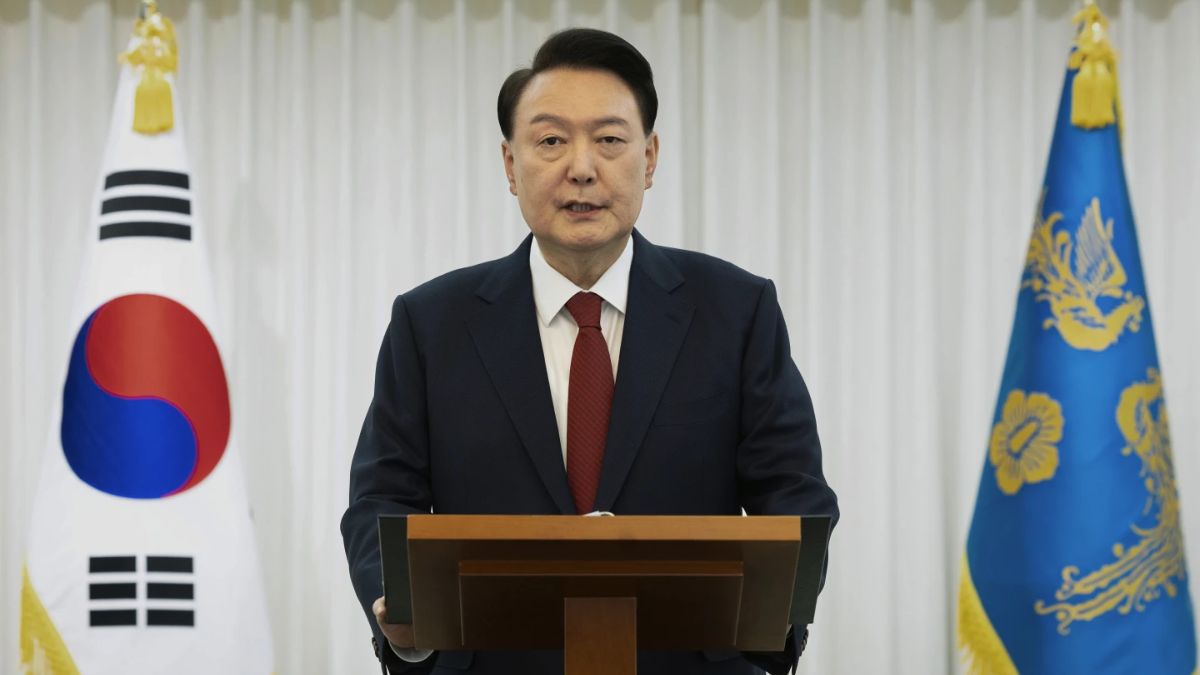South Korea’s Constitutional Court upheld the impeachment of the country’s President Yoon Suk Yeol on Friday. The panel of judges overseeing the case unanimously voted to uphold Yoon’s impeachment.
This means the South Korean leader is immediately removed from the office of the President. The county now has to hold a snap election to replace him. During the hearing, the constitutional court judge read out the arguments from both sides. The court found that Yoon did not follow procedures when he implemented martial law.
The judge noted that Yoon’s exercise of “national emergency powers” was not justified, BBC reported. “There was no existence of the national emergency,” says Justice Moon Hyung-bae, who is acting president of the constitutional court. “It was a situation that could have been solved through other means other than military deployment,” he added.
The court believed Yoon went against those “he was supposed to protect and damaged people’s political rights”. “He did not uphold his duties and went against the people they were supposed to protect,” Justice Moon averred. Meanwhile, Yoon’s ruling People Power Party said they accepted the decision of the court and apologised to the Korean people.
Pro-Yoon supporters take on streets amid tight security
South Korean President Yoon Suk Yeol’s supporters take on the streets of Seoul as the country as the court ruled in the infamous impeachment case. According to BBC, the crowd of Yoon supporters were seen chanting “cancel impeachment” at a rally held outside the presidential palace.
Apart from this, the flags of the United States and South Korea were waved in the area, both symbols of the pro-Yoon camp. Several people were also wearing Stop the Steal pins - the slogan used by Donald Trump supporters that was co-opted by pro-Yoon conservatives.
Impact Shorts
More ShortsIn light of this, the South Korean authorities have tightened security near the presidential palace and the Constitutional Court. According to the New York Times, at least 14,000 police had been deployed to the area around the court, closing subway stations and locking down an area near a former royal palace that is popular with tourists and home to major businesses.
The use of drones in the area has already been banned, and schools, vendors and businesses have been ordered to shut down. Meanwhile, Yoon did not attend the reading of the decision, that formally removed him from his office.
How did we get here?
On the fateful day of December 3, 2024, the South Korean president declared martial law in the country, leaving the citizens, political opponents and his own party members surprised. At that time he claimed that he was declaring martial rule to save the country from “North Korean sympathisers,” alluding to the South Korean opposition party leaders.
However, people saw it as a manoeuvre to deal with his political enemies, as a strong opposition in parliament has increasingly hamstrung him. The events that followed were, the South Korean national legislature unanimously ended the martial law in the country, impeached the president and Yoon was later charged with insurrection.
The opposition later used a parliamentary majority to impeach Yoon’s second-in-command acting President Han Duck-soo. In January this year, Yoon was arrested by the South Korean police and was only released in March after his detention was overturned on technical grounds.
Since then, South Korea has been steeped in political turmoil with people becoming more and more divided on the matter. Many are now hoping that judgment would bring some closure to the ongoing crisis.
It is pertinent to note that a ruling from the Constitutional Court cannot be appealed. On the eve of the Constitutional Court’s ruling, South Korea’s interim leader, Han Duck-soo, called on the nation to respect the decision “with calm.”
“The government will not tolerate any illegal or violent acts,” he said on Wednesday, urging politicians not to incite violence. “This is a time to put the stability and fate of our community ahead of political interests," he concluded.
)